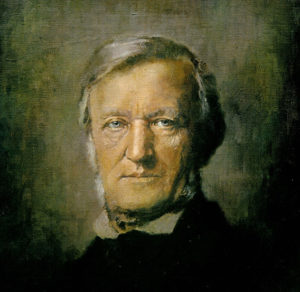In announcing the abridged translation of Savitri Devi’s Souvenirs et réflexions d’une Aryenne, I wrote:
There are many things I’d like to comment on now that, by editing it severely to make it more readable (the French sentences Savitri uses were too long and the thread of discussion was lost), I came to grasp her philosophy.
The first thing that occurs to me, in addition to the preface I added to this translation, is to complement her philosophy by translating (1) an essay originally published in the webzine Evropa Soberana on what Hinduism says about the darkest hour of the Abendland (the West), and (2) a simplified version of the text of Wagner’s The Ring of the Nibelung. That will round off a bit the content of this splendid book by Savitri which, as I say in the ‘Editor’s Preface’, helps us to finish crossing the Rubicon (instead of getting stuck inside the river, as those on the racial right are stuck today).
The first clause has already been fulfilled here, here and here.
Now I’ll fulfil the second: to present the general idea of Wagner’s The Ring of the Nibelung to fill in the questions left open in Savitri’s philosophy. I do this because I have noticed that neo-Nazis use swastikas and other Nazi paraphernalia but are generally ignorant of the art that the Führer loved.
On the internet, I haven’t found an English abbreviation of The Ring of the Nibelung at a level that a Wagner neophyte could understand. So in the next entry, I will start translating Wagner’s story from an illustrated collection I used to leaf through when I was a child. This abridged translation of Wagner’s tetralogy was published in Fabulandia: something analogous to an illustrated edition of Grimms’ Fairy Tales in collectable instalments, published by Editorial Codex of Argentina in the 1960s.
Although I watched with interest the complete tetralogy on the small screen, it is too long and complex and requires a literary abridgement, such as this one undertaken by the Argentines of the last century, for the neophyte to understand Wagner’s magnum opus.
While I translate the first fascicle of the tetralogy the visitor could read our 2011 post, ‘Wagner’s wisdom’. It should be remembered that the author of that essay, a German who published articles in Kevin MacDonald’s webzine under the pseudonym Michael Colhaze, eventually asked MacDonald to delete all his articles presumably because he could be targeted by German thoughtpolice. Fortunately I saved his article, which I re-titled ‘Wagner’s wisdom’, in the old incarnation of The West’s Darkest Hour.
